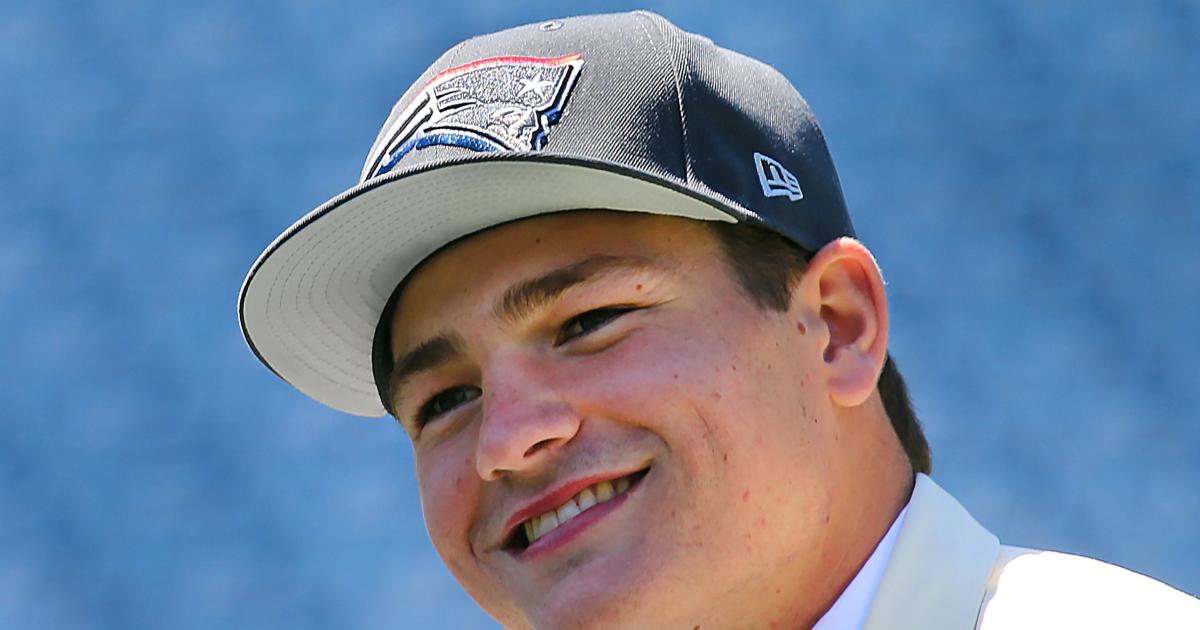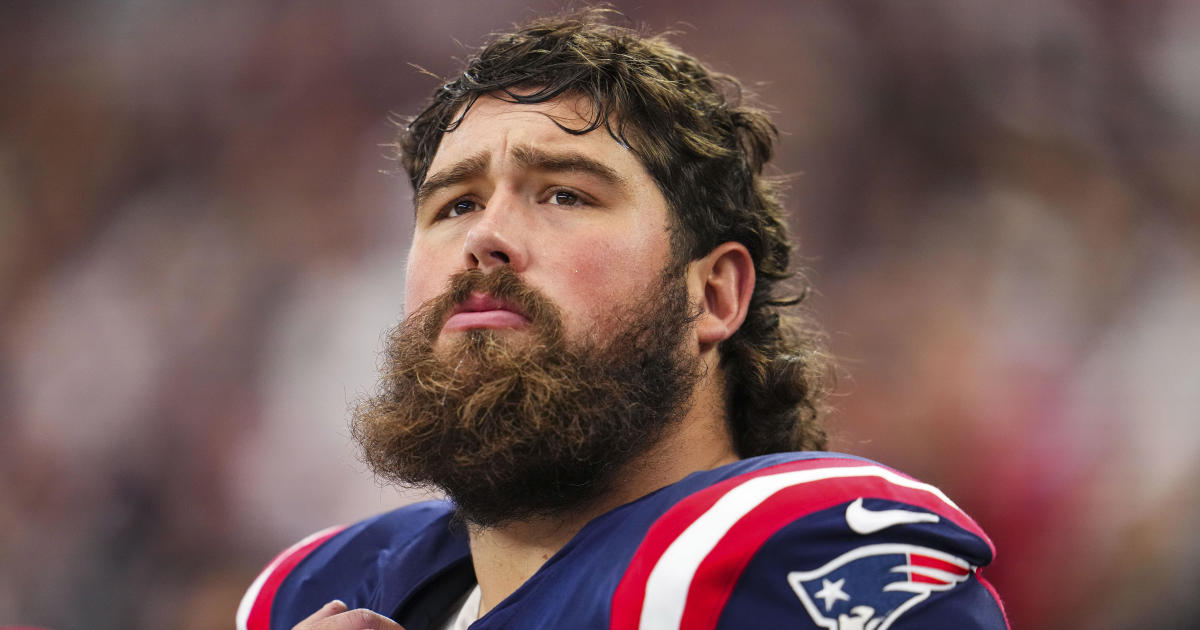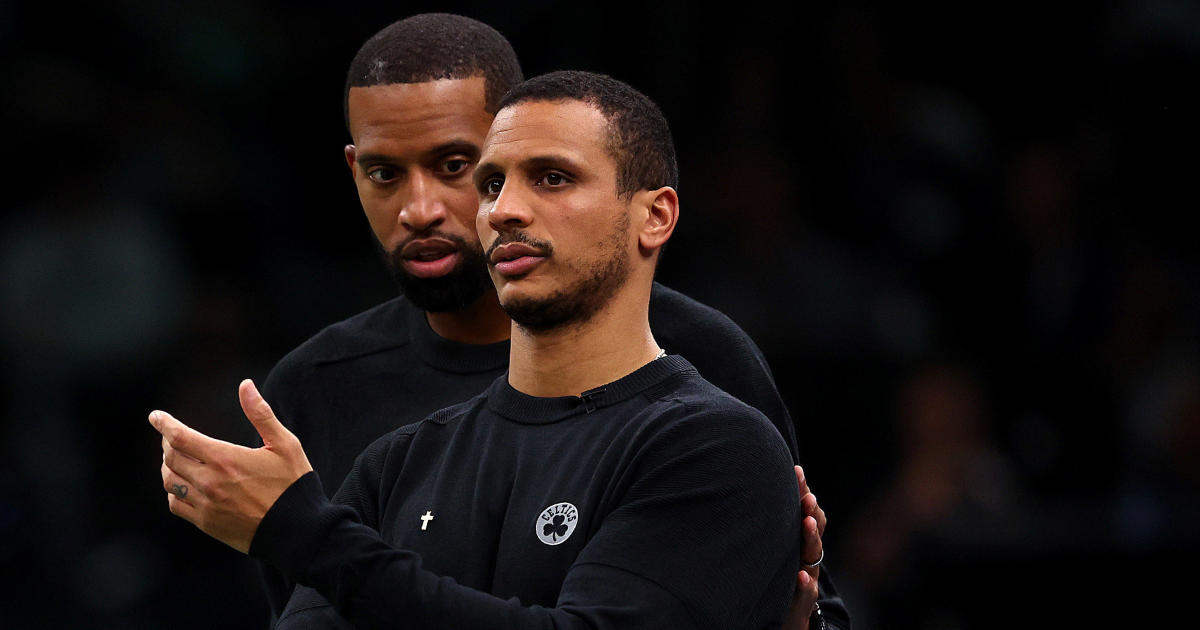Hurley: Ultimate Underdog Malcolm Butler Gets His Well-Deserved, Well-Earned Payday
By Michael Hurley, CBS Boston
BOSTON (CBS) -- Malcolm Butler owes his entire professional career to the New England Patriots. But they still gave him a raw deal.
In order to get there, you have to start from the beginning, and you have to go to Vicksburg, Mississippi. There, a 24-year-old kid had just completed his senior season at a school called West Alabama -- a collegiate career that began after getting kicked off the team at a community college, working at Popeyes, and working his way back to a Division II school. And it was in a backyard in Mississippi where that 24-year-old kid was running ladder drills when the phone rang. It was the New England Patriots.
They gave him a chance. He made the most of it.
You know what he did from there. He made the team out of camp, but didn't get a ton of playing time, considering Darrelle Revis and Brandon Browner occupied the starting cornerback roles. But he learned along the way, went through some growing pains, didn't record any interceptions, but always competed. That was the essence of his presence: always competitive, always bothering his opponent, never giving up.
Then he went ahead and saved the Super Bowl.
The Patriots' defensive strategy was not working. Kyle Arrington was getting torched by unknown receiver Chris Matthews. Bill Belichick and Matt Patricia felt they had to make a change. So they gave Butler a shot. He broke up a third-down pass to Jermaine Kearse, broke up another deep pass to Kearse late in the game, broke up a second deep pass to Kearse that resulted in the miracle catch, and he had the awareness to pop to his feet and shove Kearse out of bounds.
Then this happened.
He was an instant folk hero. From working at Popeyes to winning the Super Bowl. These stories aren't real. And the image of Butler weeping on the field, getting carried to the sideline by his teammates, is one that will remain indelible on New England sports history. (Nobody knew at the time that this would not be most memorable instance of Butler crying on the field during a Super Bowl.)
Tom Brady gave Butler the MVP truck. His Twitter following went from a few thousand to over 100,000 in an instant. He went to the Grammys with Julian Edelman.
He went from doing ladder drills in a Mississippi backyard to being a national sensation in a flash. If his life were to be made into a movie (which it will be, by the way), audiences wouldn't believe the story to be possible. It was the ultimate rags-to-riches tale.
But then things changed.
When trying to get to Foxboro for voluntary organized team activities at the end of May, severe weather in the Gulf of Mexico -- weather that included tornado warnings and grounded all flights in Atlanta, where Butler was at the time -- prevented Butler from flying to New England the day before OTAs began. He called the team to inform them that he was going to be late for the voluntary workouts. That phone call didn't matter.
Once Butler arrived, Belichick did not allow the second-year cornerback to participate. Instead, Belichick made Butler watch from the sidelines. For weeks.
To say the punishment was excessive would be an understatement. Butler was, likely, humiliated to be disciplined over the course of several weeks in front of his teammates. But he was young ... and he was late. He took it in stride.
Perhaps it was just Belichick making sure a young player's sense of self-importance didn't grow too big after a life-changing offseason. Bill had been around for a while, after all. He knew what he was doing, likely, and perhaps down the line, this would all be water under the bridge. That's what most figured at the time.
The 2015 season eventually began. Butler and Logan Ryan essentially split the duties of a No. 1 cornerback with Revis gone. Butler balled out. He was covering No. 1 receivers on a regular basis, and he more than held his own. Most memorably, he worked to lock down Odell Beckham Jr. after the Giants star receiver broke off a huge gain early in the game. Near the end of that game, it was Butler knocking the football out of Beckham's hands in the end zone.
He did it while making about a half-million dollars, but he was still establishing himself in the league. That's not atypical for a burgeoning star.
After that season, the "right" move for the Patriots would have been to sign Butler to an extension, perhaps in the range of four to five years, at something like $6 million per year. With top corners making upwards of $12 million per year, if the Patriots planned to use Butler in such a role and if they believed in him, then a contract extension made sense. He had certainly earned it.
But that extension never came. So Butler showed up to work in 2016, making a relatively meager $600,000 -- or the 143rd-highest-paid cornerback in the NFL. He was once again deployed as a No. 1 cornerback, and he turned in his best-ever season. He picked off four passes, defended 16 passes, and allowed a 78.2 passer rating when targeted. In the AFC title game, with a trip to the Super Bowl on the line, the Patriots asked Butler to cover Antonio Brown, arguably the best active receiver in the NFL. Butler did his job.
In Super Bowl LI, Butler was on the field for 100 percent of the Patriots' defensive snaps. He ended up not being heavily involved in the game, committing a pass interference penalty and giving up a long pass to Taylor Gabriel, but he and the Patriots nevertheless won another Super Bowl.
At that point, it was time for the Patriots to make a decision on paying Butler. Instead, they made the decision to pay Stephon Gilmore.
Instead of signing their home-grown player, the one who was given the toughest assignments and acquitted himself well more often than not, the Patriots signed a player with whom they had never even met. The message was pretty clear: Butler was no longer in the Patriots' long-term plans.
And, for a while, it looked like he wasn't even in their short-term plans. Butler was a restricted free agent, and most everyone in the football world waited patiently for the Patriots to complete a trade with the Saints to send the cornerback to New Orleans. Gilmore had, after all, taken his job, and he wasn't needed anymore. It was a stunning development for a man who was a Super Bowl hero just two years prior and a No. 1 corner in the AFC title game, but it was simply reality.
But then, what was at first seen as an inevitability just sort of ... disappeared. No trade was ever completed, and nobody really knew why.
So Butler signed his first-round tender, accepted that he'd be making a tick under $4 million in 2017, and showed up to work in a place where he was no longer really wanted.
He certainly struggled on the field, putting forth his worst season. But it was far from a total disaster, or anything of the sort. The coaching staff trusted him to take 98 percent of the team's defensive snaps, more than any other player on the team. He saved the season-altering win in Pittsburgh by tackling Darrius Heyward-Bey inbounds to keep the clock running and sending Ben Roethlisberger into panic mode before his ill-fated interception in the end zone. He also forced the infamous fumble at the pylon by Jets tight end Austin Seferian-Jenkins, a play that perfectly encapsulated the level of competition that Butler brings to ever last millisecond of every single play.
In 2017, Butler may not have been a No. 1 cornerback. Though they may have been the ones who crushed his confidence, the Patriots may have been proven to look prudent in their decision to not dedicate big dollars to him on a long-term deal.
But none of that even comes close to explaining what took place in Super Bowl LII against the Philadelphia Eagles. While everyone knew that Butler flew to Minnesota a day after his teammates after being treated for an illness, nobody say this coming. Just one game after taking all 74 defensive snaps in the AFC Championship Game, Butler was forced to watch the Super Bowl like a paying customer. He took the field only once, on a punt return, and otherwise was left to watch as the likes of Jordan Richards, Johnson Bademosi, and Eric Rowe were all asked to assume bigger roles on the defense, while Patrick Chung and Devin McCourty were essentially made to play out of position in the absence of Butler. Even as the replacements struggled terribly, Belichick and Patricia never made that move which saved them three years prior in the Super Bowl -- coincidentally, the move which made Butler a star. They never adjusted. They never recognized that something significant needed to change -- and fast.
They never gave Butler a chance.
Football-wise, it made no sense, and it is still something that has not been answered fully by Belichick. It's possible that he'll never publicly give that much-needed explanation. It remains the greatest mystery in Patriots history.
For Butler, who was shown crying during the national anthem, it was a moment of pure embarrassment. It was the OTA punishment times 100, as Belichick made an example of one of his key contributors not just in front of his teammates but in front of the entire world. It would be difficult to imagine a more humiliating situation for any player to be put in by his coaching staff.
"They gave up on me. F---. It is what it is," Butler told ESPN on his way out of U.S. Bank Stadium, following the Patriots' stunning loss to the Eagles. "I don't know what it was. I guess I wasn't playing good or they didn't feel comfortable. I don't know. But I could have changed that game."
You'd be hard-pressed to find anyone in football who watched the game and could disagree with Butler's declaration.
After the loss, Belichick's only explanation was that it was strictly a football decision. His lack of clarity and information on the matter allowed rampant speculation about various off-field offenses Butler may have committed during the week, including some speculation from one of the most well-known NFL reporters. Butler's character was being smeared, and there wasn't a whole lot anyone could do about it.
Butler defended himself via social media, and it wasn't until teammates like Tom Brady liked and commented on Butler's Instagram post that the public largely accepted that Butler hadn't spent the week in Minnesota at late-night parties.
Even after the smears were proven false, the question remained just how badly Butler's stock would be hurt in free agency by such a high-profile benching in the biggest game of the year. How could it not? Would teams open the vault for a guy who must have done something to earn that benching? Had Belichick managed to get in one last punishment before Butler was free to make his money as a free agent?
After the Titans offered Butler a five-year contract worth $61 million and $30 million guaranteed, we now know that the answer was no. Coincidentally, the team that already employs Logan Ryan saw Butler as the perfect fit to round out a defensive backfield that already boasts a First Team All-Pro safety, and they were willing to pay top dollar to get him.
And if you followed this story -- from Mississippi to West Alabama to Foxboro and now to Nashville -- you can't help but recognize Butler is the rarest of stories in this business. In a sports world full of inflated egos, bloated contracts and underperforming players, Butler is the exception. A true underdog in every sense of the word, doubted every step of the way, the work never got easy for Butler -- even after he became a star. He always seemed to have a tougher draw than most others, but he always persevered. Now, he's finally, at long lost, cashing in with a massive payday that was well-earned.
What a story.
You can email Michael Hurley or find him on Twitter @michaelFhurley.




